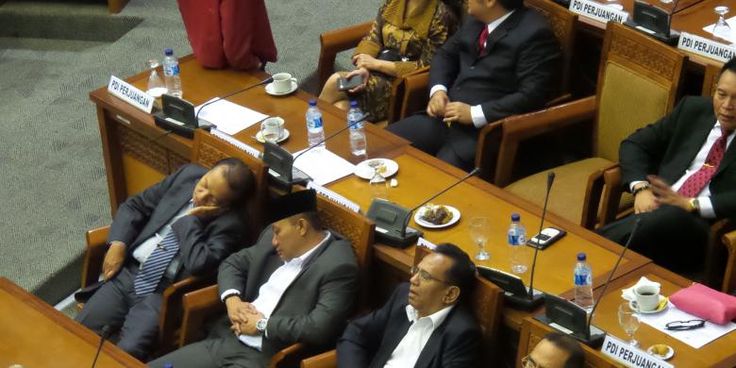CampusNet – The Dewan Perwakilan Rakyat (DPR), Indonesia’s House of Representatives, is meant to be the voice of the people. Fighting for their rights, shaping policies for the common good, and ensuring the government remains accountable. Yet, as years go by, public trust in the institution continues to erode.
Instead of being the rakyat’s (people’s) advocate, many now see the DPR as nothing more than the devil’s advocate. Defending political elites, shielding controversial policies, and prioritizing self-interest over national progress.
The DPR’s Original Role: A Forgotten Mission?
As a legislative body, the DPR is entrusted with three main responsibilities: making laws, overseeing the government, and managing the national budget. These roles are essential in maintaining a democratic balance. However, recent years have shown a concerning trend, rather than challenging the government’s questionable policies, the DPR often appears complicit in endorsing them.
Controversial Policies and Decisions
Several policies and legislative moves have raised questions about the DPR’s commitment to the people:
- The Omnibus Law on Job Creation – Marketed as a solution to economic growth, this law faced widespread protests for prioritizing corporate interests over workers’ rights and environmental protection.
- The Revised Criminal Code – Passed despite heavy criticism, certain articles sparked fears of declining freedom of speech and an increase in state control over personal freedoms.
- Weak Oversight of Government Power – Instead of acting as a check on the executive branch, the DPR often aligns itself with those in power, passing laws that benefit ruling coalitions rather than the general public.
A House for the Elite, Not the People?
One of the biggest criticisms of the DPR is the perception that its members serve party interests rather than the needs of the citizens. With a high number of lawmakers coming from political dynasties and business backgrounds. Many policies appear to favor the elite rather than addressing pressing social issues like education, healthcare, and corruption.
Moreover, the DPR is notorious for its low attendance rates. Also extravagant budget allocations for unnecessary projects, and a lack of transparency in decision-making. When the people demand action, their representatives are often nowhere to be found—unless elections are near.
Is There Hope for Change?
While criticism of the DPR is well-founded, it is not beyond redemption. Greater public awareness, stronger civic engagement, and an unwavering demand for accountability can drive meaningful reform. The rise of digital activism and independent watchdog organizations has given the people more tools than ever to monitor and challenge their representatives.
Yet, the question remains: Will the DPR reclaim its role as the people’s advocate, or just devil’s advocate? The answer, as always, lies not in the hands of fate but in the choices we make.
After all, if a god is a dog, and a man is a fraud—who, then, speaks for the truth?



